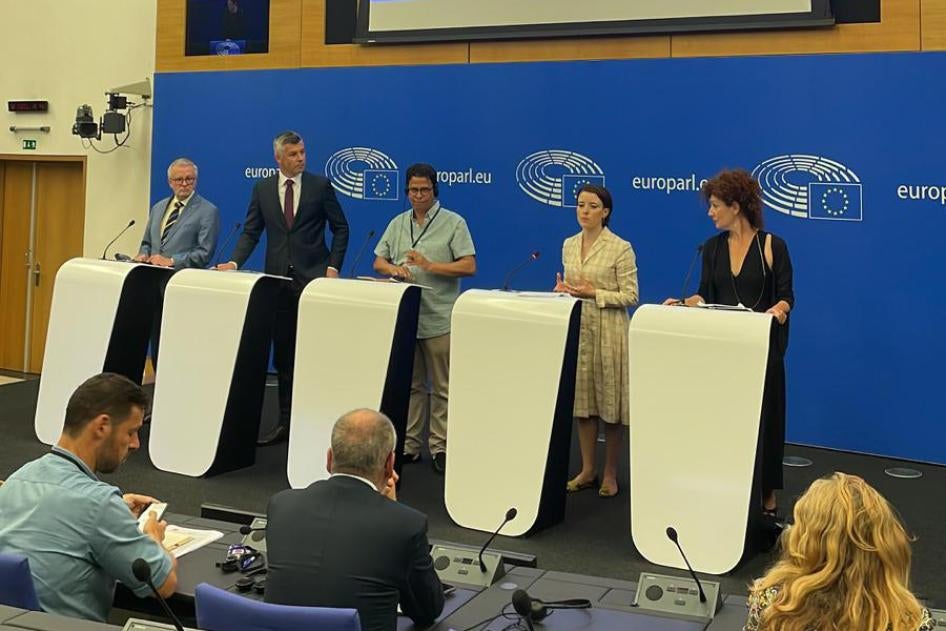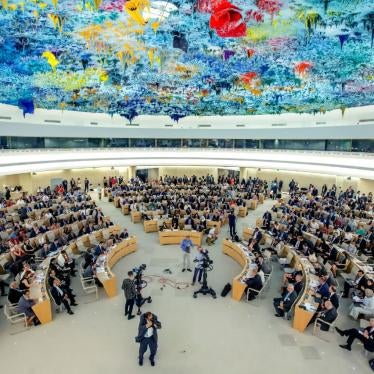Today, European parliamentarians from across the political spectrum denounced the European Union’s shortsighted approach to Tunisia, calling for stronger action on the country’s democratic backsliding.
“We will want to put democracy and human rights back at the center of any agreement with Tunisia,” said Green lawmaker Mounir Satouri. Center-right Parliamentarian Michael Gahler regretted “a return to a Ben Ali situation – and the EU has let it happen.” Center-Left Matjaž Nemec said Parliament stands by Tunisian people and migrants facing abuses, while Renew member Karen Melchior urged the EU Commission and states to respect the EU founding principles in their engagement with Tunisia. All called for the urgent release of arbitrarily detained critics.
A European Parliament’s resolution in March was prompted by a wave of arrests of critics, most of them accused of “conspiracy against state security.” Since the Parliament’s outcry, the situation has dramatically worsened. In April and May, a new wave of arrests targeted leaders and supporters of the largest opposition party Ennahda, including its President Rached Ghannouchi. Today, more than 40 people are behind bars for political activities, opinions, or statements.
Jailing critics is just one of the tools used by President Saied. In recent months, the president sacked judges arbitrarily, banned peaceful protests, and issued decree-laws that undermine judicial independence, threaten free speech, and facilitate surveillance of critics.
In contrast with the Parliament, the EU Commission and the Council failed to show concern about the deteriorating situation in Tunisia. Instead, the EU seems obsessed in obtaining Tunisia’s cooperation on migration control, despite President Saied’s hate speech and growing brutality against Black migrants and asylum seekers.
Tunisia’s breakdown in rule of law is terrible news for its citizens. But it is also bad news for the EU. A government that silences citizens, destroys checks-and-balances, and concentrates powers in the hands of one man cannot be a trusted and reliable partner. This is more important as the EU begs Tunisia for cooperation on migration. Evidence of collective expulsions and violations during interceptions at sea should make the EU rethink and suspend any migration-related funding not to appear complicit in such abuses.
If the EU is serious about human rights and about its engagement with Tunisia and Tunisians, it should urgently change course, call for the release of jailed critics and make it clear that human rights are core in its relations with Saied’s administration.









